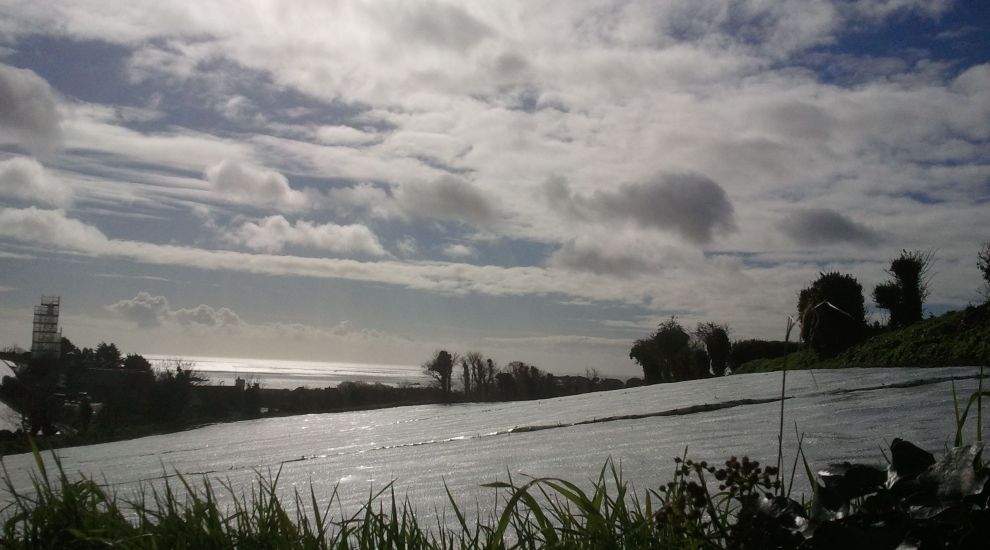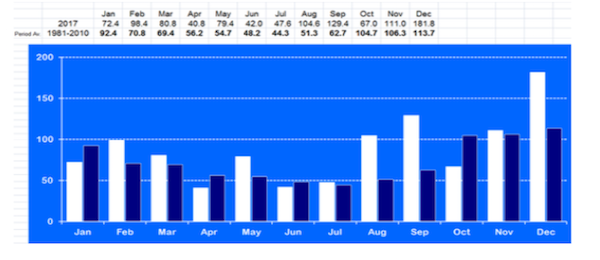

Higher levels of pesticides have been detected near one of the island’s reservoirs forcing it to close, despite tighter controls on farmers' use of the chemical.
The higher levels were detected in surface water near Handois Reservoir - which was recently added to the ‘red’ catchment zone requiring stricter controls because of the potential impact on water supplies - resulting in it being taken out of service.
The results are being blamed on the heavy rain experienced over the past few months, especially in August, September and December where rainfall exceeded average monthly amounts.
The finding is causing concern as the pesticide levels have breached regulatory limits, even before the potato season is underway - a time when more fertilisers are commonly used by the farming industry.
Islanders are being reassured mains drinking water remains clean and safe to use, but officers will be monitoring water quality closely in the coming weeks.

Pictured: 2017 rainfall totals compared to monthly millimetre averages recorded at Maison St Louis Observatory.
The Environment Minister, Deputy Steve Luce said: “I’m pleased with the continued close dialogue and co-operation of our farmers who have gone the extra mile to improve the way they work. However, although the overall trend is positive, there are still occasions when we’re picking up pesticide traces over the regulatory limits. We will continue to investigate these to get the balance right – to ensure we have a viable industry with a minimal negative impact on the environment.”
He added: “With the heavy rain likely to continue for a while, I urge farmers to check the forecast before spraying; not to spray on water logged fields to reduce the chance of run off; and to take care in choosing the right fields to apply slurry for maximum benefit and minimum environmental impact.”
Around 80% of potatoes are expected to be planted this year by specialised machines which places fertiliser where it is needed rather than spraying it across the whole field. This technology has been partly funded by the Countryside Enhancement grant scheme run by the Environment Department.
Comments
Comments on this story express the views of the commentator only, not Bailiwick Publishing. We are unable to guarantee the accuracy of any of those comments.